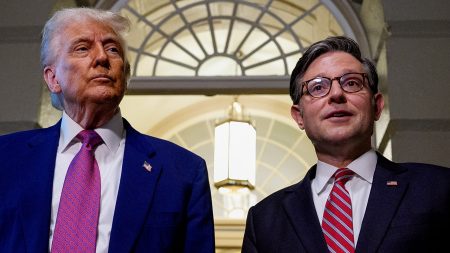The Heritage Foundation’s report, “Derailing the Tren de Aragua” (TdA), paints a stark picture of a rapidly expanding criminal organization posing a grave threat to the United States. Authored by Joseph Humire, the report argues that TdA is not merely a gang but a state-sponsored transnational criminal organization with an “invasion ideology,” backed by the Venezuelan socialist government and intent on destabilizing the U.S. It asserts that TdA’s rapid growth within the U.S. is directly linked to the Biden administration’s immigration policies, particularly the parole programs for Venezuelan migrants, which have facilitated the entry of a large number of Venezuelans with minimal vetting. Humire contends that TdA’s presence has caught U.S. law enforcement off guard and necessitates immediate action.
Unlike traditional gangs that gradually establish territorial control, TdA, fueled by its state sponsorship, aims to dominate regions within weeks. The report highlights the group’s origins in a Venezuelan prison over a decade ago and its subsequent expansion throughout the Western Hemisphere. TdA burst onto the U.S. scene in 2023 following incidents like the hostage situation in Aurora, Colorado, and the high-profile murders of Laken Riley in Georgia and Jocelyn Nungaray in Houston. These incidents have brought TdA to national attention, though Humire argues the true nature and extent of the threat they pose remains largely misunderstood.
Humire criticizes the portrayal of TdA by American media and politicians as simply thugs and criminals, emphasizing the group’s sophisticated organization and its deep ties to the Venezuelan government. He asserts that key elements within the Venezuelan government actively facilitate TdA operations, both within Venezuela and internationally. This state sponsorship, coupled with its aggressive “invasion ideology,” allows for a rapid expansion unlike that seen in other criminal organizations like MS-13. The report urges a comprehensive understanding of TdA’s motives, tactics, and strategy to effectively counter the threat.
The report directly links TdA’s rapid expansion in the U.S. to the Biden administration’s immigration policies, arguing that the influx of Venezuelan migrants has provided cover for TdA members to enter the country undetected. The Venezuelan parole program, in particular, is criticized for its lack of rigorous vetting, allowing potentially dangerous individuals to gain entry. This surge in the Venezuelan population within the U.S., facilitated by these policies, has provided fertile ground for TdA’s expansion into over 30 major U.S. cities, leading to over 100 federal investigations.
The report proposes a series of recommendations for the incoming Trump administration to “derail” TdA. Humire advocates for an “Operation Aurora,” mirroring Texas’ efforts, employing a “whole-of-government approach” utilizing federal resources from Border Patrol, ICE, and the military, in conjunction with state law enforcement and Latin American partners. He urges the Trump administration to designate TdA as a transnational terrorist organization and classify Venezuelan migrants as “special interest aliens.” This designation would allow for more stringent vetting of Venezuelan migrants, a measure Humire argues would protect both American citizens and legitimate Venezuelan asylum seekers from TdA infiltration.
Humire expresses optimism about the Trump administration’s commitment to addressing the TdA threat, citing the early appointment of a border czar and the selection of key cabinet members like Marco Rubio and Michael Waltz as indicators of a serious commitment to tackling the issue. He contrasts this with the perceived lack of political will from the Biden administration and believes the new administration’s focus on border security and national security will provide the necessary impetus to effectively counter TdA’s expansion. He underlines the urgency of the situation, noting that key TdA leaders are believed to be still outside the U.S., offering a window of opportunity to prevent further entrenchment.










